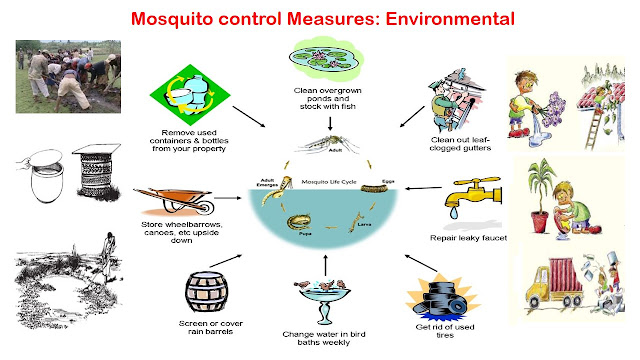Gastritis: A common problem but more annoying
What is gastritis?
What are the symptoms of gastritis?
The symptoms of viral gastritis are similar to those of viral gastroenteritis but vomiting is more common in gastritis than diarrhea.
The common symptoms are
- Burning sensation/discomfort
(felt in the upper abdomen and lower chest)
- Nausea, vomiting
- Abdominal pain
- Abdominal bloating
- Anorexia (loss of appetite)
- Indigestion
- Hiccups
- Belching
- Acid reflux
- Black tary stools
- Feeling too full & too soon after a meal
- Feeling tired & light headedness
- Shortness of breathe
What are the causes of gastritis?
The inflammation of stomach lining is caused mainly by the infection by viruses or bacteria but can also caused by fungi & other parasites. It is also a part of a group of diseases that cause erosion and gastric ulcers. Helicobacter pylori (a bacterium) has been seen as an important cause of these diseases. It can also be caused by autoimmunity & various other diseases. The following factors are often found to be associated with gastritis:
- Aspirin and other anti-inflammatory drugs
- Alcohol
- Smoking
- Caffeine drinks
- Overeating
- Foods that don’t digest easily
- Spicy foods
- Extreme stress/overwork
- Illness
- Trauma (e.g. burns, severe injury)
How much common is this problem?
Gastritis is very common disease and almost everyone has experienced an occasional bout of gastritis some or other time. It normally lasts for 1-2 days. It is very rare that discomfort in epigastric area, nausea and vomiting caused by gastritis alone lasts longer. In such cases a viral cause should be suspected. Symptoms may persist if someone drinks large amounts of alcohol and smoke.What are the risks due to gastritis?
It is normally a mild illness which is followed
by a quick recovery. One of the complications is an erosion (ulceration) of the
stomach wall that may result in vomiting of blood. This is an alarming development
and requires an urgent attention. If vomiting is profuse then be careful about
getting dehydrated & consult your physician.
How gastritis is diagnosed?
Gastritis is diagnosed mainly clinically but some tests can be used depending on the suspected cause. These are as follows
- Upper GI endoscopy
- Blood tests
- Stool tests
- Urea breathe test
- X-ray
- Barium swallow
What is the treatment of gastritis?
- Your physician may prescribe proton pump inhibitors which work by blocking cells that create acid in the stomach. Common proton pump inhibitors are omeprazole, lansoprazole & esomeprazole but long term use should be avoided.
- Some medications called H2-blockers eg. Ranitidine, Femotidine act by lowering the amount of acid released & hence relieve the pain due to gastritis as well as allow the stomach lining to heal.
- Antacids cause rapid relief of pain due to gastritis as it neutralizes the acid in the stomach. Take an antacid preparation, preferably a liquid one.
- For persisting discomfort an Anti-emetic (to stop vomiting) can be prescribed and a special type of antacid can be given accordingly by the physician.
- If the problem persists or there is a complication such as bleeding or an ulcer, a test for the bacterium Helicobacter pylori and a gastroscopy should be done.
- Special treatment is available for H. pylori if it is present and medications should be taken only after consultation with the physician.
- Avoid eating solid food during the first 24 hours take only liquid or semisolid foods.
- After 24 hours eat foods that your body can tolerate.
- Take frequent and plenty of non-alcoholic & non-carbonated & caffeine free fluids such as water and milk.
- Avoid hot, fatty and spicy foods.
- Include yoghurt/curd in food as it contains probiotics which helps in healing of gastric ulcers by replenishing the gut flora.
How to prevent gastritis?
- Just have a look at your lifestyle and see whether you abuse your stomach through excessive drinking, improper eating especially ‘fast’ or irritating foods, smoking, fast living and stress.
- A healthy life style and everything in moderation will help to prevent attacks of gastritis.
- Taking excessive painkillers or taking aspirin and caffeine preparations should be avoided.
- Plenty of fluids (non-alcoholic, non-carbonated & caffeine free) should be taken.
- Avoid spicy, fatty, unhealthy fast foods.
- Foods containing high fiber should be taken such as whole grains, fruits, vegetables & beans.
- Stop smoking & excessive drinking.
- Choose a stress free & healthy life style.
When to seek medical help for gastritis?
Family physician should be consulted when
- Symptoms of gastritis persist for long.
- There is prolonged vomiting.
- Very severe epigastric/abdominal pain.
- Signs of dehydration such as excessive thirst and scanty Urination.
- Vomiting blood or ‘coffee grounds’-type vomitus.
- Black or tarry bowel movements.
References:
- John M. Murtaghs Patient Education. of 6th revised ed edition. North Ryde NSW: McGraw-Hill Australia. 2012
- Washington MK, Peek RM. Chapter 58: Gastritis and gastropathy. In: Podolsky DK, Camilleri M, Fitz JG, Kalloo AN, Shanahan F, Wang TC, eds. Yamada’s Textbook of Gastroenterology. 6th edition. West Sussex: John Wiley & Sons, Ltd.: 2016: 1103–1120
- https://www.niddk.nih.gov/health-information/digestive-diseases/gastritis-gastropathy
- APA Moayyedi, Paul M MB, ChB, PhD, MPH, FACG1; Lacy, Brian E MD, PhD, FACG2; Andrews, Christopher N MD3; Enns, Robert A MD4; Howden, Colin W MD, FACG5; Vakil, Nimish MD, FACG6 ACG and CAG Clinical Guideline: Management of Dyspepsia, American Journal of Gastroenterology: July 2017 - Volume 112 - Issue 7 - p 988-1013doi: 10.1038/ajg.2017.154
- https://bestpractice.bmj.com/topics/en-us/816
- https://www.healthline.com/health/gastritis-diet#what-to-eat







Comments
Post a Comment